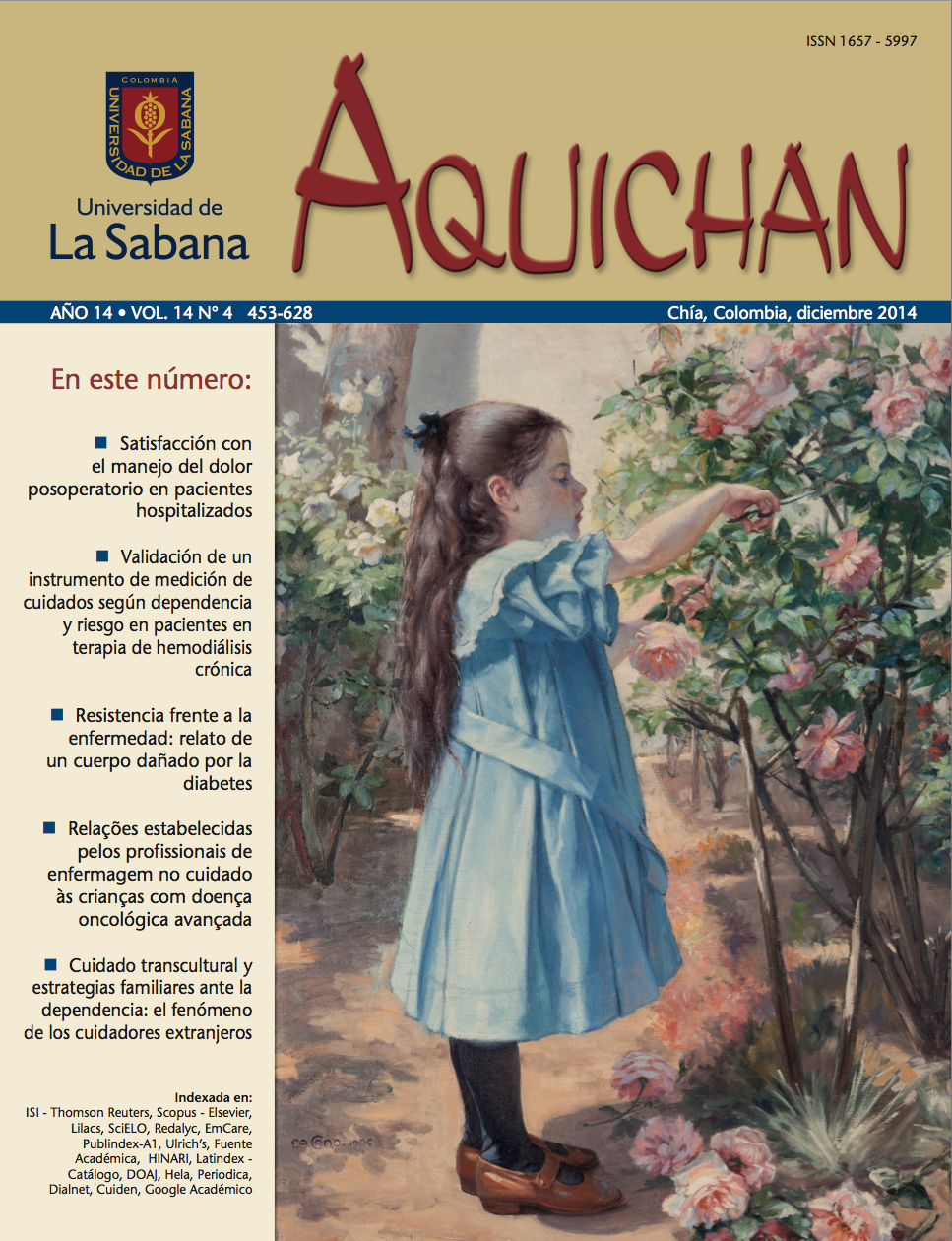Transcultural Care and Family Strategies to Deal with Dependency: The Phenomenon of Foreign Caregivers
Keywords:
Foreign caregivers, dependency, cultural competency, immigration, transcultural care. (Source, DeCS, Bireme).Abstract
Introduction: When a caregiver comes from a country other than that of the person being cared for there is a clash of cultures and social practices. Leininger's concept of transcultural care echoes the cultural diversity this contrast or opposition involves and recommends incorporating it into professional practice by developing what she defines as culturally competent care. Purpose: The purpose of this study was to know what type of strategies foreign caregivers develop when caring for people of different origin and how these strategies are integrated into the social, cultural and institutional context of the recipient society. Study Materials and Methods: A qualitative approach was used, based on in-depth interviews with immigrant caregivers in the province of Huelva and with personnel specialized in dependent patient care. Results: The study provides a description of the socio-cultural practices caregivers develop, according to their culture, and how those practices intervene in the exercise of care in the recipient society. Conclusions: Foreign caregivers sometimes develop strategies akin to their own beliefs, giving them priority over those of the care recipient or the recipient society. This can cause cultural clashes. Nursing professionals must identify these clashes so as to be able to intervene, using training and cultural competency as tools for change.Downloads
Download data is not yet available.
Published
2015-01-16
How to Cite
García-Navarro, E. B., & Gualda, E. (2015). Transcultural Care and Family Strategies to Deal with Dependency: The Phenomenon of Foreign Caregivers. Aquichan, 14(4). Retrieved from https://aquichan.unisabana.edu.co/index.php/aquichan/article/view/2528
Issue
Section
Articles
License
1. Proposed Policy for Journals That Offer Open Access
Authors who publish with this journal agree to the following terms:
- The journal and its papers are published with the Creative Commons License Attribution-NonCommercial-NoDerivatives 4.0 International (CC BY-NC-ND 4.0). You are free to share copy and redistribute the material in any medium or format if you: give appropriate credit, provide a link to the license, and indicate if changes were made; don’t use our material for commercial purposes; don’t remix, transform, or build upon the material.





